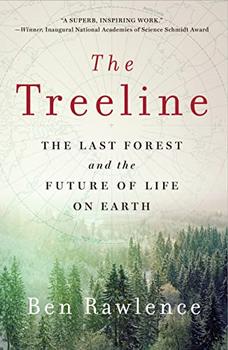Summary | Excerpt | Reviews | Beyond the book | Read-Alikes | Genres & Themes | Author Bio

The Slow Poisoning Of The Arctic
by Marla ConeWhether hunting giant bowhead whales with native Alaskans who are struggling to protect their livelihood, or tracking endangered polar bears in Norway, Cone reports with an insider's eye on the dangers of pollution to native peoples and ecosystems, how Arctic cultures are adapting to this pollution, and what solutions will prevent the crisis from getting worse.
An amazing scientific and personal journey into the lands, animals,
and native peoples of the Arctic, which is home to some of the most dangerous
and lethal contaminants on the planet
Traditionally thought of as the last great unspoiled territory on Earth, the
Arctic is in reality home to some of the most contaminated people and animals on
the planet. Awarded a major grant to conduct an exhaustive study of the
deteriorating environment of the Arctic by the Pew Charitable Trusts (the first
time Pew has given such a grant to a journalist), Los Angeles Times
environmental reporter Marla Cone traveled across the Arctic, from Greenland to
the Aleutian Islands, to find out why the Arctic is toxic.
What she discovered was shocking: Tons of dangerous chemicals and pesticides
from the United States, Europe, and Asia are being carried to the Arctic by
northbound winds and waves and amplified in the ocean's food web. As a result,
Inuit women who eat seal and whale meat have far higher concentrations of PCBs
and mercury in their breast milk than women who live in the most industrialized
areas of the world, and they pass these poisons to their infants, leaving them
susceptible to disease. Polar bears near the North Pole are increasingly born
with altered immune systems and sex hormones.
Silent Snow is not only a scientific journey, but a personal one.
Whether hunting giant bowhead whales with native Alaskans who are struggling to
protect their livelihood, or tracking endangered polar bears in Norway, Cone
reports with an insider's eye on the dangers of pollution to native peoples and
ecosystems, how Arctic cultures are adapting to this pollution, and what
solutions will prevent the crisis from getting worse.
To get an insight into the cause of this problem and why it effects the colder climates of the Arctic more so than the rest of the world and, most importantly, why it matters, spend five minutes reading the excerpt at BookBrowse. It will be time well spent! If you haven't already done so, I also encourage you to browse The Weather Makers...continued
Full Review
(260 words)
This review is available to non-members for a limited time. For full access,
become a member today.
(Reviewed by BookBrowse Review Team).
Marla
Cone is one of the USA's premier environmental
journalists. She has nineteen years of experience
covering environmental issues and has twice won a
national award for environmental reporting.
In 1962 Rachel Carson warned of the the dangers of DDT
in Silent Spring. Now Marla Cone warns of a far
more malignant cocktail of poisons that have already
reached crisis levels in the Arctic region.
The Arctic is the 'canary in the coal mine' for the rest
of the world - what happens there will eventually happen
across the world. Already, the mothers of one...
This "beyond the book" feature is available to non-members for a limited time. Join today for full access.

If you liked Silent Snow, try these:

by Ben Rawlence
Published 2023
In the tradition of Elizabeth Kolbert and Barry Lopez, a powerful, poetic and deeply absorbing account of the "lung" at the top of the world.

by Arlie Russell Hochschild
Published 2018
2016 National Book Award Finalist for Nonfiction
A 2016 New York Times Notable Book
New York Times Bestseller



If there is anything more dangerous to the life of the mind than having no independent commitment to ideas...
Click Here to find out who said this, as well as discovering other famous literary quotes!